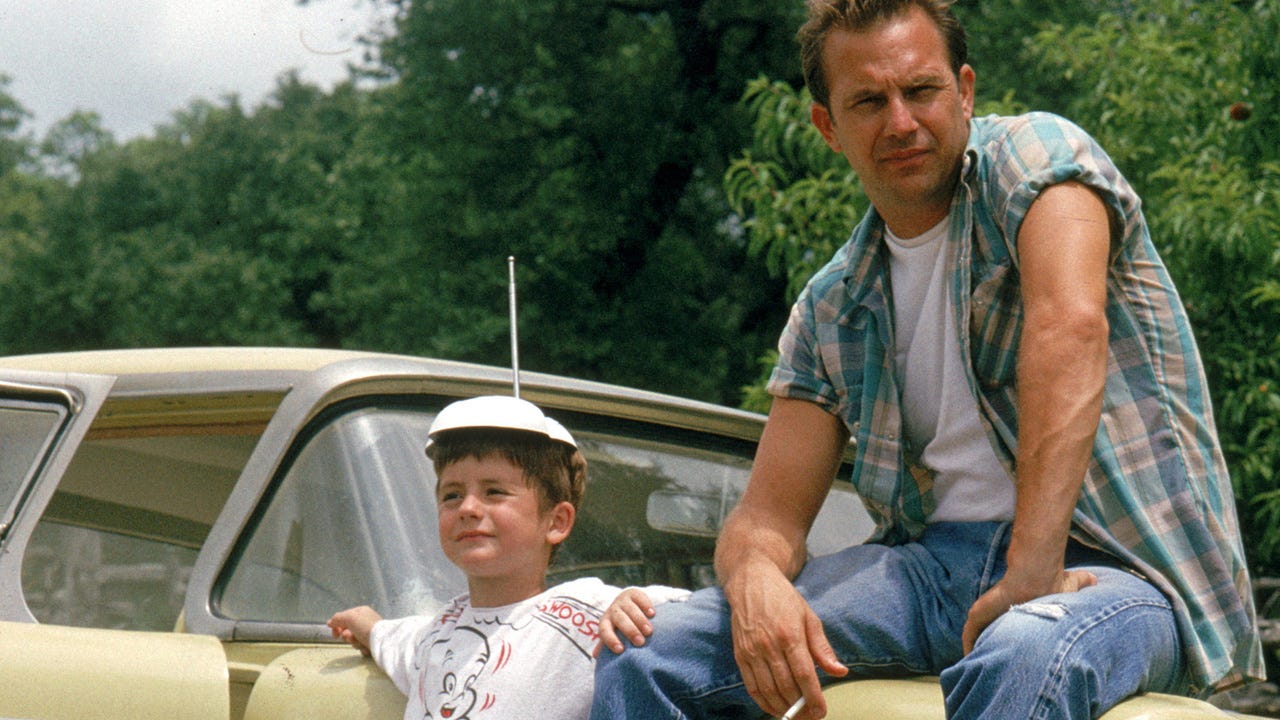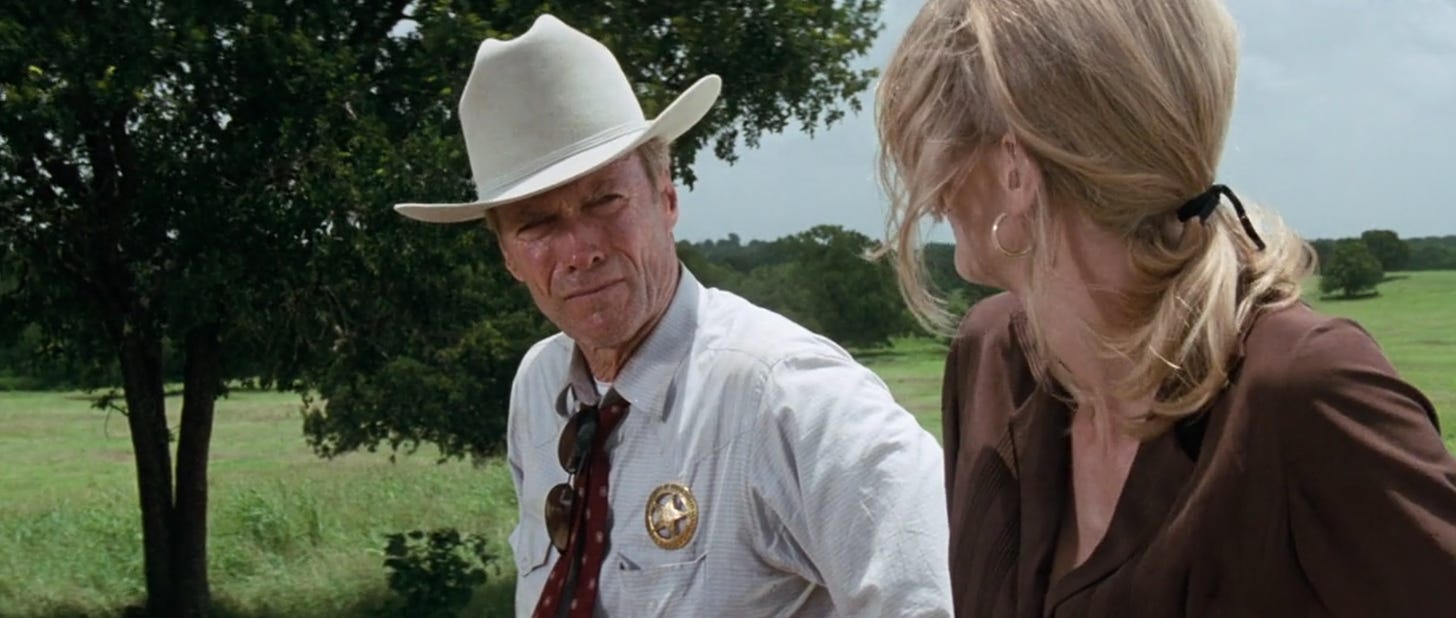Clint Eastwood's Time Machine
How do you follow-up a career-defining masterpiece like 'Unforgiven'? With the minor-key greatness of 'A Perfect World.'
“I ain’t a good man. I ain’t the worst, neither.” — Kevin Costner, A Perfect World
In our last Sight & Sound conversation, on Agnès Varda’s The Gleaners and I, Keith and I talked about the moments in the film where Varda, then in her 70s, seized the opportunity to reflect on her own mortality. As much as she had been energized by a new age of small digital cameras, where she could go back to her DIY roots and make personal films with a camera in one hand and a heart-shaped potato in the other, Varda also sees herself in the societal discards that have aged past their expiration dates. At one point, she examines herself through the lens and says, “My hair and hands keep telling me the end is near.” But we know now that the end wasn’t near, because she’d keep making movies for another 20 years and enjoy a second life as a documentary essayist and New Wave filmmaking icon. She planned for the end and got the beginning.
Not every artist has the luxury—if that’s the right word (it isn’t)—of knowing when they’re going to die and working that into a final statement, like David Bowie’s death-haunted Blackstar or Robert Altman’s lovely career denouement A Prairie Home Companion, which was such a tenuous project that Paul Thomas Anderson was brought in as a back-up director for insurance purposes. Other filmmakers seem to file their “final” film in advance: Martin Scorsese made Killers of the Flower Moon and has plans for many more projects, but The Irishman nonetheless feels like his last feature, in that he brought together Robert De Niro, Joe Pesci, and Harvey Keitel for another gangster epic that’s suffused with grief, regret, and a kind of exhaustion. There’s a sense that Scorsese wanted to make sure that last will and testament was filed, no matter how many years he had left.
Clint Eastwood directed his last film in 1992 and has made 24 features since, including his new (and perhaps actually final) Warner Bros. project, Juror No. 2, though the 94-year-old continues to work with such efficiency that he probably has his eye on another one. But he will never make a better film than 1992’s Unforgiven—which is not a slight, because vanishingly few directors have made a better film—in part because his entire screen history as a Western hero figures into the story of Will Munny seeking a bounty like a condemned man searching for some sliver of redemption. Eastwood has never been the type of director to get fussy about whatever comes next, but the question remained: When you make a career-capping statement like Unforgiven, what do you do for an encore? And how could it not feel like a letdown?
Eastwood’s answer was to come back the next year and make A Perfect World, one of the best films of his career, but how it’s great feels important, because it would set the stage for over three more decades of filmmaking to come. It is not a statement film, but a minor-key crime drama about fathers and sons and the merits of doing the simple, decent, honorable thing when it matters. And while Eastwood gives himself a significant role in the film as the sort of salty, authoritative lawman he could play in his sleep—living icons don’t need to project much to bring gravitas to a scene—he puts another actor, Kevin Costner, at center stage. Though there isn’t much evidence that Eastwood curates his directing career that closely, given the pace and variety of his work, the timing of A Perfect World could not have been better. It’s unassuming without feeling like an anticlimax.
It’s also a continuation of the moral ambiguity that Eastwood brought to Unforgiven and brings often to his films, up to and including his fine new drama Juror No. 2. “Butch” Haynes, the escaped convict played by Costner, isn’t that far removed from Will Munny in that he’s accumulated plenty of sins over the years and walks a wayward path to atonement. Will and Butch do have a moral code, but the film explores where those lines are drawn, even though Eastwood himself angles toward doing the right and just thing in the end. As Butch says late in the film, “I ain’t a good man. I ain’t the worst, neither.” We may see Butch at his best—the situation he finds himself in forces his best out of him, really—but it’s not hard to imagine how smoothly and readily he slips into the role of outlaw. Like Will, that road seems predetermined for him.
Keep reading with a 7-day free trial
Subscribe to The Reveal to keep reading this post and get 7 days of free access to the full post archives.





